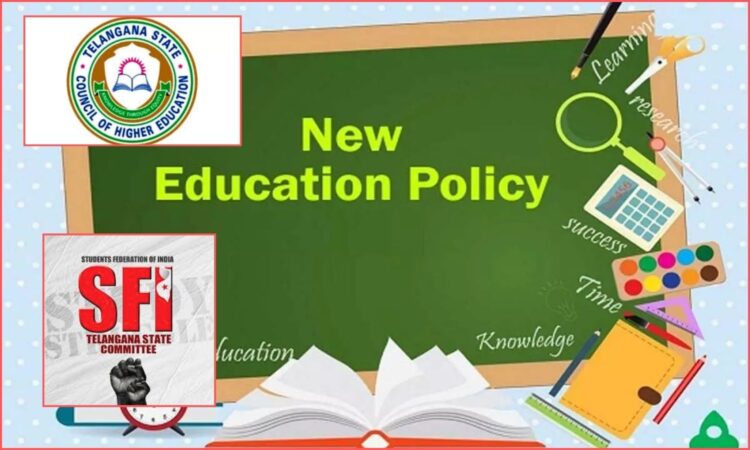Hyderabad: The Students’ Federation of India (SFI) welcomed the Telangana government’s decision to draft a state education policy. However, it insisted that the new framework must differ sharply from the National Education Policy (NEP) 2020.
In a statement, SFI state president S Rajanikant and secretary T Nagaraju urged the government to adopt a progressive approach. They further stressed that the policy should reflect the views of all stakeholders and place public education at its core.
Telangana education policy must prioritise primary education
The federation cautioned against repeating NEP 2020’s shortcomings, particularly its neglect of primary education. Instead, it demanded that anganwadi schools remain intact rather than be absorbed into ‘foundation courses’ that weaken early learning. Moreover, SFI called for higher budget allocations to strengthen basic education.
It also pressed for the introduction of both Telugu and English media in schools. In addition, the organisation demanded adequate funding, improved infrastructure, and immediate teacher recruitment to address persistent shortages.
Strengthening higher education in Telangana
SFI argued that comprehensive changes are needed from Class 1 to Class 12. Consequently, it asked the government to improve infrastructure, create more classrooms, expand computer education, and provide better hostel facilities. It also urged regular recruitment of teachers to stabilise institutions.
When addressing higher education, the federation demanded strong universities and timely appointments of professors and assistant professors. Furthermore, it insisted that courses must run in regular mode, warning against contractual teaching practices.
SFI opposes the privatisation of education
The federation strongly opposed privatisation, stating that it would commercialise learning and restrict access for disadvantaged students. Therefore, it urged the government not to evade responsibility for public education.
Additionally, SFI leaders sought more government engineering and technical colleges. They concluded that the Telangana education policy will succeed only if it prioritises public institutions and expands access for all.










